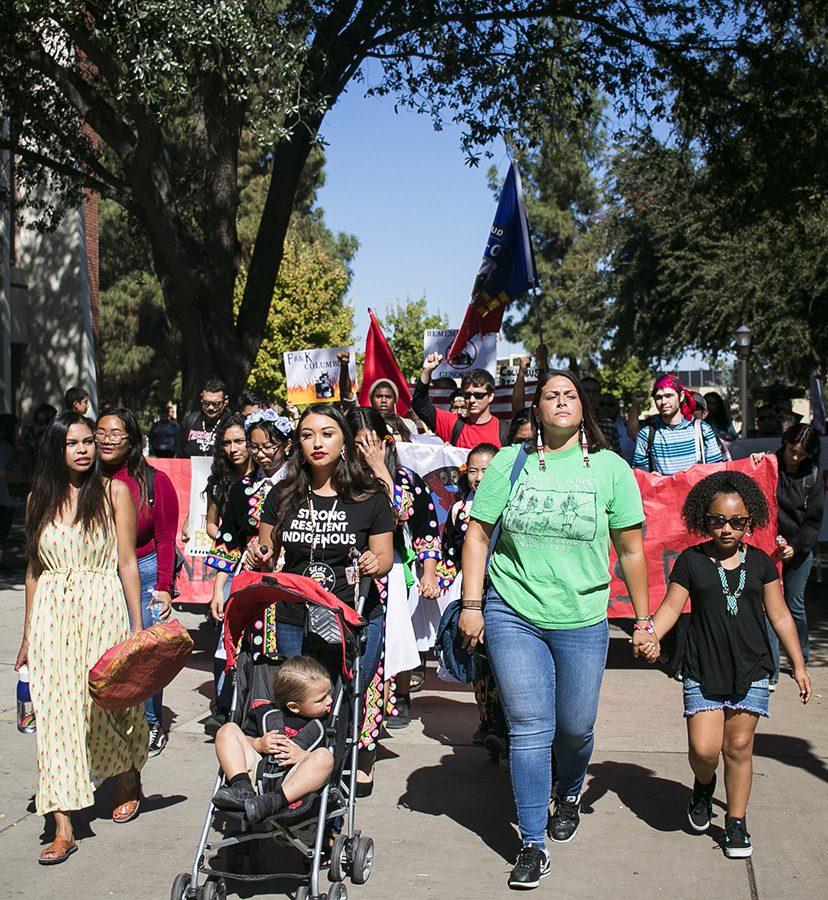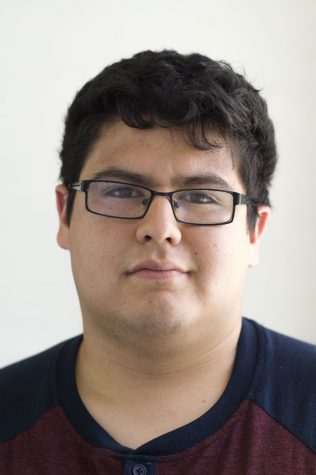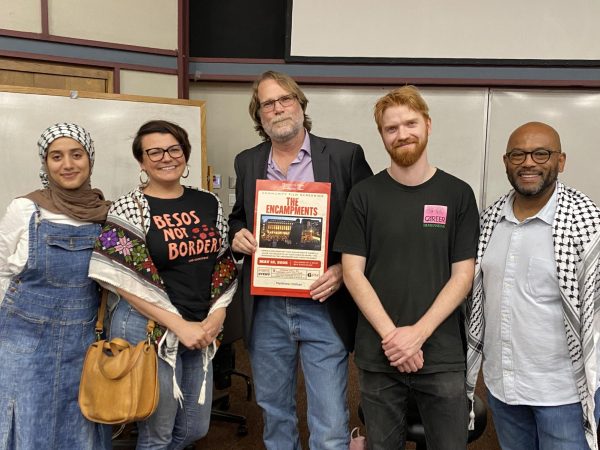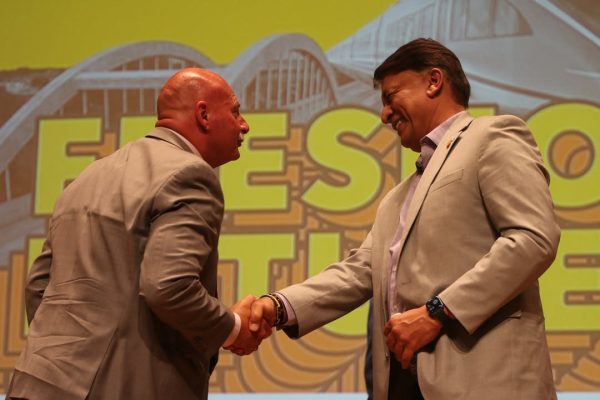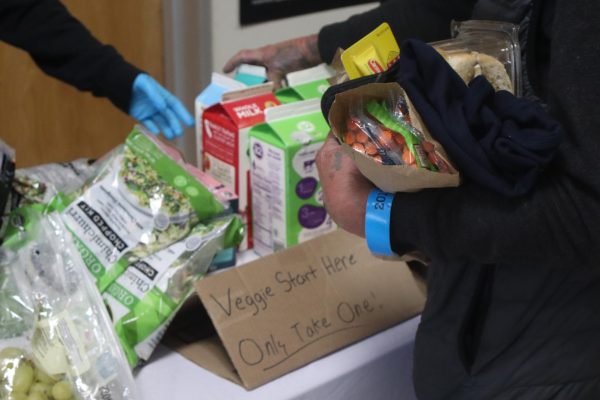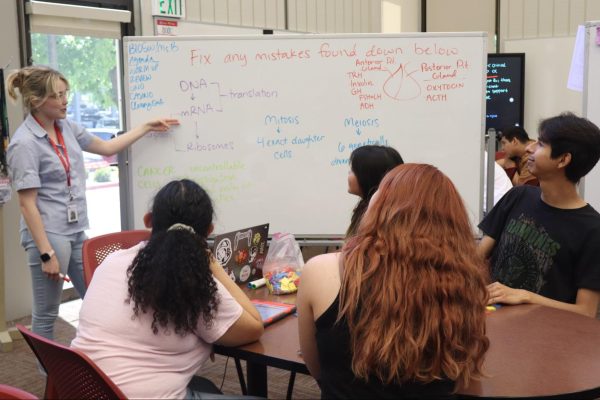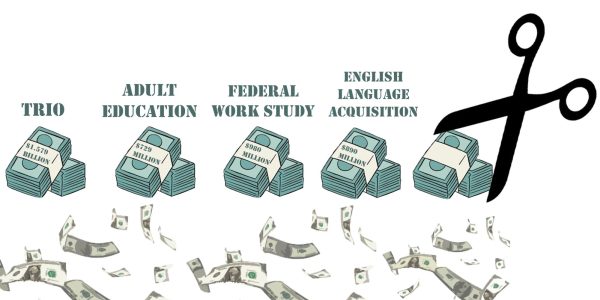Indigenous People’s Day Alive at FCC
Photo by: Larry Valenzuela
Students hold up signs and march to the fountain area to celebrate Indigenous people’s Day on Monday, Oct. 8, 2018.
The smell of sage wafted through the air amidst a crowd of 100 people gathered in front of the Student Activities Building to celebrate Indigenous People’s Day on Oct. 8.
Participants began to gather around 11 a.m., then the procession began at 11:20 a.m. with a blessing ceremony by Delaine Bill, a member of the Mono Yoka tribe, the original inhabitants of the San Joaquin Valley.
“We march for our people, our ancestors,” Bill told the crowd.
Bill and a group of four other drummers sang four songs honoring the four corners of the world (North, South, East, West). They began to beat a drum symbolizing the heartbeat of the people, while singing traditional songs.
Once the singing concluded, participants began their march — to the Old Administration building, passing by the cafeteria, finally arriving by the main fountain in front of the Assessment Center.
The procession on campus lasted around 15 minutes, the sound of the beating drum and “Brown Power” chants reverberating throughout the Fresno City College campus.
Through a mic set up at the top of the stairs of the Assessment Center, 13 speakers shared their stories. There was a traditional “fancy shawl dance” accompanied by a song by the Hummingbird singers, and another performance by the Dance Royals, a Hmong dance group of Design Science High School.
Around 200-250 people gathered around the water fountain to hear the speakers share their stories.
“Christopher Columbus discovering America is like me breaking into your home and discovering your flat screen TV set,” said Bernard Navarro, professor of Native American Studies and organizer of the event. “You can’t discover a place where there’s millions of people already living.”
Indigenous People’s Day was created as a holiday meant to replace Columbus Day, a national holiday honoring Christopher Columbus who is credited with discovering the Americas. More than 70 cities and universities in the United States have chosen to drop the controversial holiday in favor of Indigenous People’s Day this year.
“From the way that I pray, down to the way that I choose to raise my child, and the way that I choose to live my life, Indigenous People’s Day is taking all this colonialism and settler colonialism and healing intergenerational trauma through intertribal collaboration,” Natalie Deanda, member of the Confederated Tribes of Siletz, said.
Participants held signs that read, “Remember the genocide,” and “America was not discovered; it was invaded.”
Cecilia Casillas, member of the Yaqui tribe, read an excerpt from “The Devastation of the Indies: A Brief Account,” a book by Bartolomé de Las Casas which describes how the Spanish decimated towns, sparing no one, torturing, and abusing their women.
“We’re here to celebrate our culture to help educate you all, and also to thank our ancestors for getting us this far,” Navarro said.
Navarro said that Native American people today still face many harsh realities. This past summer, he had visited Pine Ridge Indian Reservation which, he said, felt like being in a “third world country.”
“They have to boil their water because it’s filthy, because it has toxins in it, right here in the United States,” he said. “And we say this is the greatest country in the world, but we have people who are living in an oppressed state all over.”
Around 1:10 p.m., Navarro quoted asked students and others in the crowd to recite quotes from prominent Native American figures such as Sitting Bull, Chief Dan George, Chief Tecumseh, and John Trudell.
Bill ended the celebration by leading four chants in the four directions with his group of drummers around 1:20 p.m.
“We’re not here to insult anybody, we’re not here to hurt anybody’s feelings,” Navarro said, “We’re here to celebrate who we are, and to celebrate our heritage, but most importantly to honor the ancestors, because they got us here today.”

